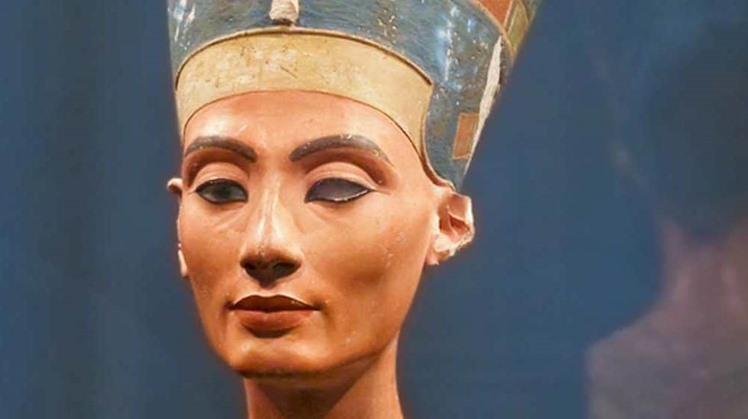5 years have passed since the British Nicholas Reeves theory, in which he claimed that the mummy of Queen Nefertiti was behind the tomb of King Tutankhamun, and after a long study, nothing was reached, and it seems that the famous Egyptian queen was not buried there, and although the research did not reach a conclusion, but a team of scientists Egyptians still believe that the ancient queen could be buried in a secret room inside the tomb of King Tutankhamun, while Dr. Zahi Hawass believes that the theory of "Nicholas" is nothing but misconceptions and myths that are not related to science.
Some theories explained the absence of a known tomb for the great Queen of Egypt, Nefertiti, because of her separation from her husband Akhenaten at the end of his days, as well as because of her dispute over the rule with Smenkhari after Akhenaten's death, and the weakness of Tutankhamun's character.
Concerning the separation of Queen Nefertini from her husband, the monotheist King Akhenaten, the Egyptian archaeologist Dr. Selim Hassan mentioned in his encyclopedia "Ancient Egypt" in Part V, that a painting now preserved in the "Berlin" Museum indicates the utmost disregard for morals and morals in which "Akhenaten" appears adjacent to his brother "Smankara" surrounded his waist with one of his hands, and stroked his chin with the other in love and pampering, and each wore the king's crown, and there is no doubt that this image sends in the soul of those who see it many meanings about the abnormal sexual relationship between the two brothers, and Nefertiti, his beautiful wife, did not bear patience. So, a dispute arose between her and the Pharaoh, and she abandoned her palace voluntarily or involuntarily to another neighborhood in the city called "Shadow of Ra". She and Tutankhamun swept this new place, and left her first palace for "Akhenaten" and his beloved brother, "Samenkara" and his wife, who is the daughter. His second is called "Merit Aton".
From here we found the king had ordered the erasure of the name "Nefertiti" from every place he adorned in the palace, and the name "Meritaten and Samenkara" was inscribed in his place, and to order what "Akhenaten" proved the name "Merit Aton" on the palace of her mother, "Nefertiti" with mentioning her lineage to him without Her mother, in contravention of the royal traditions that were followed, that there is something significant that may have caused the increase in the aversion between "Nefertiti" and "Akhenaten", because "Akhenaten" was not limited in his delusion to the extent mentioned, but he went too far and married His third daughter, "Ankhs in Ba Aten", and a female was put from him by this name, so what goodness is sought from him yet, and the marriage of kings to their daughters was not common until that time, and we know of him only three incidents of this kind in the history of the Pharaohs, one of which is doubtful .
Dr. Salim Hassan indicates in his famous encyclopedia that after the departure of Akhenaten, "Smenkhkar" took over, and he and his wife, "Marit Amun", daughter of "Akhenaten", settled in "Thebes". The men of the court, headed by the priest Ay, who was the greatest supporter of "Akhenaten", wanted to publish His new doctrine is for things to stabilize, but "Nefertiti" was lying in wait for them, prompted by hatred for Smenkhkar, and regret for the blessing that was stolen from her late husband, to take revenge. She did not pledge allegiance to “Smenkhkar” to the throne, and did not recognize him any right in it, and she sought his first supporter “Ay”. Then she appealed to the king of “Khita” and asked him for one of his sons to be her husband and heir to the throne of Egypt. "Shabiliuliyuma", the king of "Khita", made sure of the sincerity of "Nefertiti's" desire to send one of his sons to Egypt, but things were taking place quickly in "Tell el-Amarna" and in "Thebes", as the king "Smenkhkar" died, and here the revolutionaries jumped against Ibn Malak "Khaita" They killed him on the way, and the situation was complicated, then he was released as Tutankhamun, the son of Amenhotep III, ascended the throne of the country, and with him his wife, Ankhs in Ba Aten, daughter of Akhenaten and Nefertiti.
 Tue, Aug. 18, 2020
Tue, Aug. 18, 2020